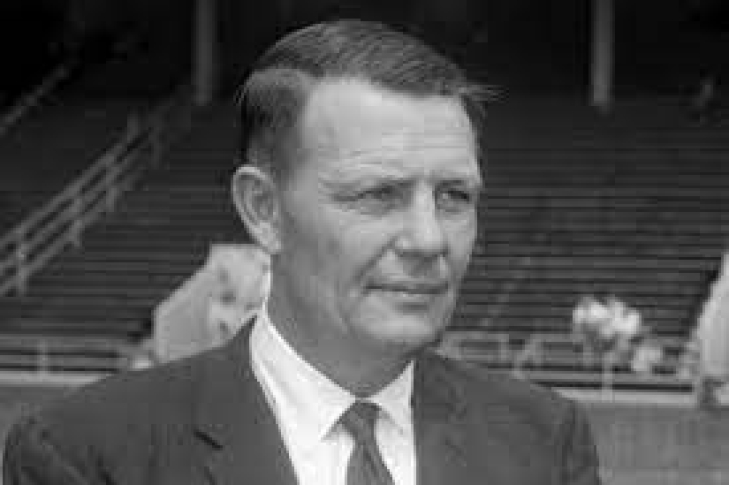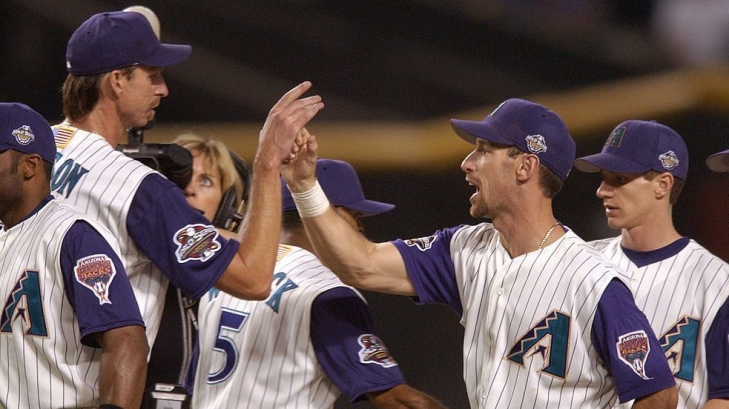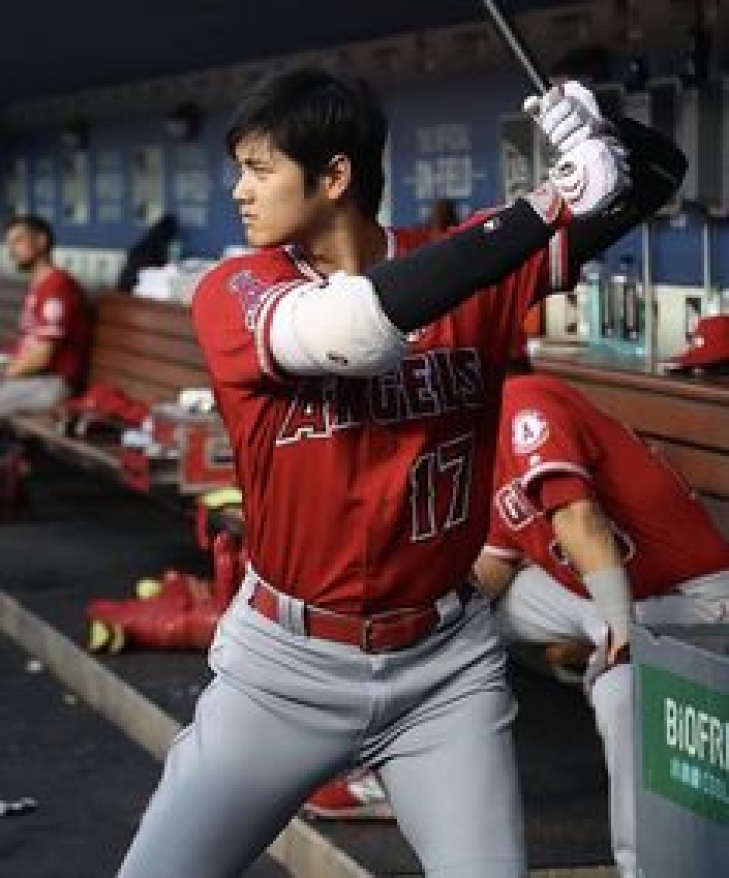
Committee Chairman
Buddy Parker named the Coaches/Contributor Finalist for the 2023 PFHOF Class
We are in the 2023 National Football League pre-season, and as always it coincides with the Pro Football Hall of Fame announcements of their Senior and Coach/Contributor Finalist. Today, the latter was announced, and it was former Detroit Lions and Pittsburgh Steelers Head Coach, Buddy Parker.
Parker was Detroit’s Head Coach from 1951 to 1955, where he led them to two NFL Championships. He was also Pittsburgh’s Head Coach from 1957 to 1964 and had an overall record of 104-75-9.
This does not mean that Parker is a slam dunk for induction, as he will be put forth towards the 50-person Selection Committee, but history indicates the will likely be elected.
Those who were Semi-Finalists, but did not make the cut were Tom Coughlin, Mike Holmgren, Frank “Bucko” Kilroy, Robert Kraft, Dan Reeves, Art Rooney Jr., Marty Schottenheimer, Mike Shanahan, Clark Shaughnessy, Lloyd Wells and John Wooten
The Arizona Diamondbacks will induct Randy Johnson and Luis Gonzalez into their Hall of Fame
Regular visitors of Notinhalloffame.com know that we are slowly working on the top 50 of every major team in the NHL, NBA, NFL and MLB. Once that is done, we intend to look at how each team honor their past players, coaches and executives. As such, it is important to us that the
Arizona Diamondbacks have announced that Randy Johnson and Luis Gonzalez will be charter members of their franchise Hall of Fame.
An expansion team in 1998, the Diamondbacks shocked the world of sports when they defeated the powerful New York Yankees. Johnson was the co-World Series MVP (along with Curt Schilling) and Gonzalez delivered the Series-winning RBI.
Known as “The Big Unit”, Johnson spent eight seasons with Arizona over two runs (1999-2004 & 2007-08) and won three ERA Titles, five Strikeouts Titles and one Wins Title. He captured the Cy Young in four straight seasons (1999-02) and was a five-time All-Star as a Diamondback. He fanned 2,077 batters with a 118-62 record for the team.
Gonzalez began his MLB career in Houston in 1990 and after stops in Chicago (NL), Houston for a second time and Detroit, he joined the D-Backs in 1999, where he went to his first All-Star Game and led the National League in Hits (206). In addition to his World Series heroics, he added four more All-Stars, had five consecutive 100-RBI plus years (1999-2003), and smacked 224 Home Runs for the team.
We here at Notinhalloffame.com would like to congratulate Randy Johnson and Luis Gonzalez for earning this impending honor.
Aug 14 Update: Notinhalloffame MLB Cup Standings.
It is with great pleasure that we continue the third annual Notinhalloffame MLB Regular Season Cup, and let us explain how this works:
With every single regular season game, we anointed the best five players in the game with descending points, 5-4-3-2-1.
We knew the following:
- The top players for the MLB NIHOF Cup are not always the best in the league, as injuries keep players out of games, and a premium on staying healthy can help pile up points. It also does not hurt to be a top player on an average or mediocre team, as they can amass Cup points easier that elite players on loaded squads.
- In Baseball, it is more common than in Basketball and Hockey for a player to accrue points with a single Home Run in a game, and overall favors position players. Starting Pitchers have a hard time with approximately 30-35 Starts and throwing less innings than in previous generations. This also is true for closers, which is not made for this process.
- Please remember, that this is NOT necessarily who we think were the best players this year, and does not reflect overall consistency. Treat this the way did, as a fun process and more of a compilation of temporary statistical domination.
At present 994 (up from 974 last week) players have generated at least one Cup Point.
So, MLB players! Get your agents to work winning this into your contracts!
This is the thirteenth update, with standings as of the morning of August 14.
1. Shohei Ohtani: Los Angeles Angels, Designated Hitter & Pitcher: (Ranked #1 Last Week)
179 Cup Points, 117 Games, 1.53 Cup Points per Game, 41 Home Runs, 84 Runs Batted In, 17 SB, .305/.408/.665, 9.2 bWAR & 10-5, 3.17 ERA, 165 SO, 1.064 WHIP.
The Notinhalloffame Cup is built for Ohtani, who can compile points in two different avenues; the only one who can do so. Ohtani continues to grow the gap between himself and his nearest competition, and we can’t see him losing the Cup. After cooling off on the mound, Ohtani is still the American League leader in H/9 (5.9), and is third in Strikeouts (165). With his bat, Ohtani is the current AL leader in bWAR (9.2), Home Runs (41), Triples (8), Walks (75), OBP (.408), Slugging (.665), OPS (1.073), OPS+ (186) and Total Bases (290), while also being second in Runs (91), third in RBIs (84), and fifth in Batting (.305). The AL MVP is his to lose, and we don’t think he will.
2. Ronald Acuna: Atlanta Braves, Outfield: (Ranked #2 Last Week)
147 Cup Points, 117 Games, 1.26 Cup Points per Game, 26 Home Runs, 71 Runs Batted In, 55 SB, .337/.421/.574, 5.9 bWAR.
Acuna leads all National League batters in Stolen Bases (59), Runs Scored (107) and OBP (.425) and is second in bWAR (5.9). In the other Slash Line components, he ranks third in Batting (.337), Slugging (.574) and OPS (.995). Acuna also holds the ninth-place spot in Home Runs (26).
3. Freddie Freeman: Los Angeles Dodgers, First Base: (Ranked #3, Last Week)
142 Cup Points, 117 Games, 1.23 Cup Points per Game, 23 Home Runs, 83 Runs Batted In, 16 SB, .339/.417/.588, 5.2 bWAR.
Freeman has the NL lead in Doubles (43), OPS (1.005) and OPS+ (167) while also currently placing second in all three Slash Line stats (.339/.417/.588). He is also second in Runs (101), Hits (158) and is fifth in Runs Batted In (83).
4. Matt Olson: Atlanta Braves, First Base: (Ranked #5 Last Week)
138 Cup Points, 117 Games, 1.18 Cup Points per Game, 43 Home Runs, 107 Runs Batted In, 1 SB, .273/.382/.621, 5.0 bWAR.
Olson has the National League lead in both Home Runs (43), RBIs (108), Slugging (.621) and Total Bases (276). He has also moved to second in OPS (1.003), and is enjoying the best year of his career.
5. Mookie Betts: Los Angeles Dodgers, Outfield: (Ranked #6, Last Week)
120 Cup Points, 99 Games, 1.12 Cup Points per Game, 31 Home Runs, 80 Runs Batted In, 8 SB, .287/.388/.579, 5.6 bWAR.
Betts has had a great summer, where he made his seventh All-Star Game. In the National League, he is currently third in bWAR (5.6) and Slugging (.579), fourth in OPS (.968), sixth in OBP (.388) and ninth in Batting Average (.287). Betts has also moved into third in Home Runs (31) and sixth in RBIs (75).
6. Juan Soto: San Diego Padres, Outfield: (Ranked #4, Last Week)
133 Cup Points, 118 Games, 1.13 Cup Points per Game, 24 Home Runs, 75 Runs Batted In, 6 SB, .268/.407/.507, 4.4 bWAR.
Soto is the National League leader in Walks (98) and is fourth in OBP (.407), and sixth in OPS (.915). He is also ninth in RBIs (75).
7. Kyle Tucker: Houston Astros, Outfield: (#7, Last Week)
127 Cup Points, 117 Games, 1.09 Cup Points per Game, 22 Home Runs, 88 Runs Batted In, 24 SB, .297/.378/.519, 3.5 bWAR.
Tucker has been on fire lately and had moved up to fourth in OBP (.378), Slugging (.378) and OPS (.896), and eighth in Batting (.297). He is also in the top ten in RBIs, Hits and Extra Base Hits.
8. Luis Arraez: Miami Marlins, Second Base: (Ranked #10, Last Week)
118 Cup Points, 113 Games, 1.04 Cup Points per Game, 4 Home Runs, 57 Runs Batted In, 1 SB, .367/.411/.467, 4.6 bWAR.
Arraez is the runaway leader in Batting Average (.367) and is also the National League leader in Hits (162), while recently slipping to third in On Base Percentage (.411). He also has a very impressive Slugging Percentage (.467) for a player with only four Home Runs.
9. Rafael Devers: Boston Red Sox, Third Base: (Ranked #8 Last Week)
114 Cup Points, 111 Games, 1.03 Cup Points per Game, 26 Home Runs, 79 Runs Batted In, 2 SB, .265/.335/.512, 2.6 bWAR.
Devers remains a surprise being so high as he was not in the All-Star Game, nor was considered a significant snub. He and is currently third in the AL in RBIs (76), fourth in Home Runs (26) and sixth in Slugging (.512).
10. (TIE) Corbin Carroll: Arizona Diamondbacks, Outfield: (Ranked #8, Last Week)
111 Cup Points, 113 Games, 0.98 Cup Points per Game, 21 Home Runs, 59 Runs Batted In, 36 SB, .271/.351/.512, 4.1 bWAR.
Carroll is running away with the National League Rookie of the Year Award, despite some solid competition. At present, the young Outfielder is tenth in OPS (.862), eighth in OPS+ (135), and is second in Stolen Bases (36).
10. (TIE) Alex Bregman: Houston Astros, Third Base: (Not in the Top Ten, Last Week)
111 Cup Points, 118 Games, 0.94 Cup Points per Game, 18 Home Runs, 75 Runs Batted In, 3 SB, .254/.353/.417, 3.5 bWAR.
Bregman makes his first top ten appearance, giving Houston two to join the Dodgers and Braves in the top ten.
Nobody fell out of the top ten.
Our next update will be the afternoon of August 21.
The Evolution of Online Casino Payment Solutions: Past, Present, and Future
Digital payments have played a huge role in propelling the iGaming industry to the stage where it is today. They made the hobby more accessible and more appealing. Additionally, they helped operators localize their gambling sites for specific markets. Players are more likely to trust a site if it allows them to make deposits and withdrawals via local payment solutions. Take the Czech Republic for example, where many who transact online use NeterPay. As a result, any NeteraPay casino is automatically more appealing and trustworthy, to the gambling enthusiast there. It shows that the company has made an effort to enable a payment solution that people trust.
Clearly, a lot has changed in the past two decades. So, let’s see how online casino payment solutions have evolved and discuss how they will continue to improve.
Early Days of Online Gambling
Many countries that legalized online gambling had to tread lightly across this new landscape. During the early days, operators had to have brick-and-mortar establishments in order to conduct business online. This is still the case in many countries where the hobby is legal. The sites didn’t even have payment gateways, users had to go to physical gambling establishments and top up their accounts.
Soon after operators added payment gateways that allowed users to add funds via credit and debit cards, and they could also use wire transfers. Although this was more convenient many were still reluctant to embrace these new solutions. Leaving sensitive payment information on a website didn’t feel like a prudent thing to do. Luckily, this has changed with the introduction of digital wallets.
Digital Wallets
It didn’t take long before online gambling sites started to accept digital wallets or payment methods that were widely used for internet shopping:
- PayPal
- Skrill
- Neteller
- Payoneer
- ecoPayz
This was a big game changer especially since many users did have PayPal accounts. One of the reasons why PayPal was so popular is because it teamed up with eBay which is one of the top e-commerce sites. This helped PayPal establish its presence as a dominant fintech company, and it soon became the most widely used payment solution. Since people rarely maintained big balances on their PayPal accounts, they were more comfortable with adding this payment method.
Mobile Payments
Another reason the online casino industry boomed is thanks to smartphones. It was easy for anyone to go online or play via an app. Furthermore, players could use GooglePay and ApplePay for deposits and withdrawals. This meant, that payments were more streamlined and secure. Those who use Apple Pay don’t have to share their payment information with the operators. The whole transaction is encrypted and it happens between Apple and the casino.
Of course, having a digital or e-wallet isn’t an option for everyone. After all, you will need a bank account or a source of revenue to add funds to that wallet. Luckily, there are ways to make a deposit nowadays even without these apps. All you need is a cellphone and an operator that accepts SMS payments. You can find a list of online casinos that accept SMS deposits on this link - https://playsafecz.com/zpusoby-vkladu-v-casino/sms-vklad-casino/ and play without a bank account or digital wallet
Cryptocurrencies
Many gambling operators managed to expand their user base by embracing crypto or blockchain payments. This has brought about a number of advantages for players. It is one of the fastest and safest ways to move money between digital wallets, and it eliminates all of the pain points of cross-border payments. This meant that many casino fans could easily play on foreign sites as if they are operating locally.
Blockchain technology also added another level of privacy. Now there was no need for casinos to gather KYC documents, which eliminates the need to sign up and verify the account. In other words, crypto casinos allow for anonymous play. Anyone can have a play session via a dedicated URL, make a deposit via a crypto wallet, and withdraw the funds afterwards. What’s more, cryptocurrencies have gained more utility which helped them increase in value. As a result, crypto enthusiasts often support gambling sites that enable these payment methods.
Future of Payment Solutions
Even though the fintech industry is evolving, a lot of regions are still underbanked. Meaning they don’t have access to modern payment solutions. So, most of what’s available today will slowly make its way to other parts of the world. This means there will be fewer and fewer people who are relying on SMS payments. Additionally, some payment methods like eChecks are only used by the older gambling community. So, it’s possible these will be phased out in the coming decades.
The world is gravitating towards digital currencies now, which also indicates that cash will be completely replaced. As centralized digital currencies are easier to regulate it wouldn’t be surprising for more people to jump onto the crypto wagon. They value their privacy and don’t like the idea of every transaction being recorded.





